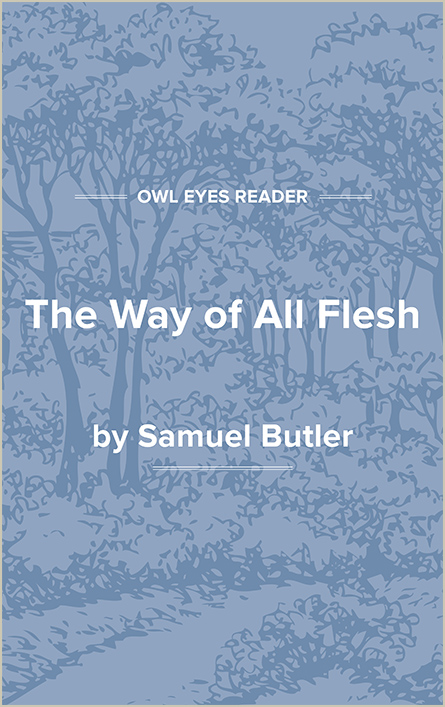Study Guide
Samuel Butler Biography
Samuel Butler was born in 1835, the son of a clergyman who wished him to go into the church. After a successful career at Cambridge University, Butler prepared for a career in the clergy but found himself unable to face the prospect of that life. Letters between Butler and his father show the young man to be considering a half dozen plans at once—art, the army, cotton growing, and bookselling among them. Finally, father and son agreed that the young man should emigrate to New Zealand and try his fortune there, with Butler’s father providing capital. Both father and son hoped that the experience would “settle” Butler and build his character.
Butler arrived in New Zealand in January of 1860 and remained there for four years. It was a useful time: He made money, which freed him of his family, at least financially, and he saw an unusual country that gave him a subject and setting for his later writings. New Zealand, however, was too rough a land to be his permanent home. His “hut” there was an island of comfort and civilization, where Butler devoted himself to music and study. His optimistic letters home became the basis of A First Year in Canterbury Settlement (1863), a book assembled and published by Butler’s father.
Returning to England in 1864, Butler settled at Clifford’s Inn in London, which would be his home for the rest of his life. He began to study art; his paintings had some success. He wished to do something greater, however—something that would express his developing ideas. Out of this desire grew Erewhon, a satire that was published anonymously in 1872 at the author’s own expense. By that time, Butler was already at work on The Fair Haven. This book may or may not be considered fiction; it is a dispute over the validity of Christianity, but the dispute is conducted in a fictional frame.
The following year, 1873, was an important one for Butler. The Fair Haven was published, his mother died, he made a risky financial investment, and he began The Way of All Flesh. All of these events shaped his later years. The Fair Haven, following on the heels of Erewhon, marked him as a belligerent enemy of traditional religion. His mother’s death caused him some grief, but it spurred him to begin The Way of All Flesh, the work for which he is most remembered. That work was slowed, however, by financial troubles. Butler invested his New Zealand fortune in a Canadian venture that soon failed. He salvaged less than a quarter of his investment and had to seek help from his father. Not until 1886, when his father died, was Butler wholly free of financial pressures.
The next several years were occupied by work on evolution and religion. In 1882, Butler returned to The Way of All Flesh, completing it the following year. He felt, however, that the book should not be published while anyone who could be hurt by it was still alive; therefore it did not appear until a year after his own death.
In 1883, Butler began to write music. Music and music criticism were to occupy him intermittently for...
(The entire page is 780 words.)
Owl Eyes subscribers get unlimited access to our expert annotations, analyses, and study guides on your favorite texts. Master the classics for less than $5/month!

